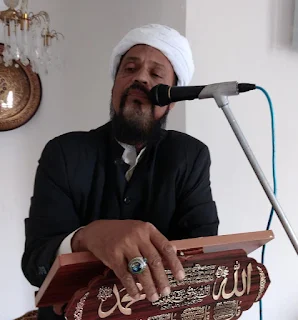The Muslims of today need to rediscover the real essence of their exalted Faith, awake to their true responsibility of embracing it wholeheartedly; being true to the commandments and prohibitions of the Way by following in the footsteps of the Holy Prophet (sa)- rather than following their own whims and interpretations based on selfish inclinations. Muslims who renew the true spirit of the Faith would eventually find the shadow of true help and succour from their Lord and it is indeed such devote believers who inherit the true favours and blessings both in this world and in the world to come, notes Hazrat Saheb (aba) in the Discourse.
Read the Friday Sermon Below:
In the year 2001, with the advent of the Divine Manifestation, the number of Muslims around the world greatly exceeded the threshold of one billion. The world which was vast at the time of the Holy Prophet (pbuh) has shrunk with the advancement of technology, means of transport and modern communications. Technological development has also contributed to the degradation of the Ummah, which has completely forgotten the teaching of the Prophet (pbuh): “Every Muslim is a brother”.
Allaziina amanu wa amiilus-Saliihaat
“Those who believe and do good.”






